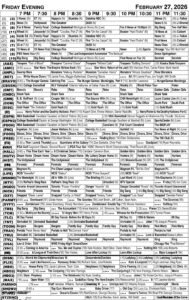What will happen if the FDA really bans natural thyroid?
On Aug. 7, 2025, the Food and Drug Administration announced that it would be demanding the elimination of natural thyroid treatment, otherwise known as desiccated thyroid extract (DTE) or natural desiccated thyroid (NDT).
It is estimated that 1.5 million patients will be impacted by this ban.
The agency justifies this action on the grounds that the: “FDA has concerns with the safety and effectiveness of the unapproved animal-derived thyroid medications, which have not been reviewed by FDA to ensure safety, purity and potency, and may have quality and dosing issues.”
Unless a manufacturer of natural thyroid medication can prove to the FDA’s satisfaction that its formulation works, the product will disappear from pharmacy shelves sometime during the summer of 2026.
We have some serious objections to the FDA’s action. Doctors have been treating patients with hypothyroidism for over 100 years. For much of that time, they used natural thyroid supplements. Synthetic thyroid (levothyroxine) was not available until 1970.
Hypothyroidism makes people feel bad. Patients experience fatigue, brain fog, constipation, dry skin, brittle fingernails, clumsiness, difficulty losing weight, depression, high cholesterol and many other symptoms.
Many endocrinologists aim to normalize TSH, thyroid stimulating hormone.
They believe that synthetic thyroid, such as Synthroid, is superior to desiccated thyroid extract for this purpose. But studies in recent years have shown that some patients feel better on natural products.
There is now research to support their experience.
An analysis published in the Journal of Clinical Endocrinology and Metabolism (June 20, 2025) showed that hypothyroid patients treated with levothyroxine alone are more susceptible to dementia and early mortality than people taking DTE.
This study will come as a shock to the FDA. That’s because it suggests that natural thyroid may be better for treating hypothyroidism than synthetic levothyroxine.
We spoke with the senior author on this study, Dr. Antonio Bianco. He explained that DTE contains two different thyroid hormones, T4 and T3 (liothyronine). Levothyroxine is only T4. Doctors expect the body to convert inactive T4 to the active form, T3. This research suggests that the conversion is not always as effective as anticipated.
As many as 20% of hypothyroid patients have an underactive deiodinase enzyme. Because it doesn’t convert T4 to T3 efficiently, these folks don’t thrive on T4 (levothyroxine) alone.
In the 20-year retrospective study, Dr. Bianco and his colleagues conducted, DTE was safe and effective — more effective, in fact, than synthetic levothyroxine.
He points out that one of the most common medicines prescribed for people who are also taking levothyroxine is a statin (Endocrine Practice, Aug. 5, 2025).
It seems that even when TSH is normal, thyroid hormone levels in the liver may be a bit low. As a consequence, hypothyroid people tend to have elevated cholesterol. How do doctors respond? Usually, they write a prescription for a statin rather than switching the patient to a synthetic combination of T4 and T3 or natural thyroid hormone.
People on DTE don’t seem to need statins as often. When will the FDA acknowledge these facts and change its plan?
In their column, Joe and Teresa Graedon answer letters from readers. Write to them in care of King Features, 300 W. 57th Street, 41st Floor, New York, NY 10019, or email them via their website: www.PeoplesPharmacy.com. Their newest book is “Top Screwups Doctors Make and How to Avoid Them.”





